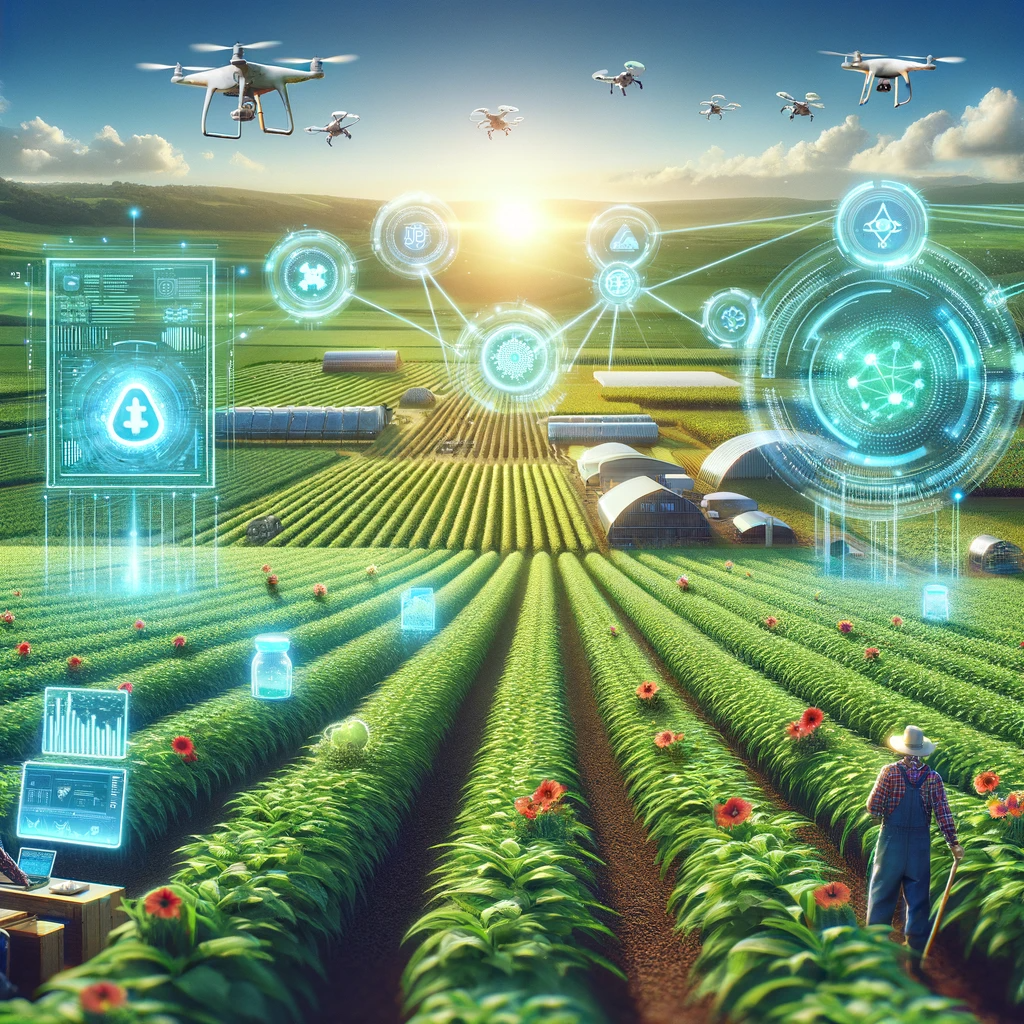
Blockchain's Breakthrough in Agriculture: Ensuring Transparency from Farm to Table
Blockchain technology, typically associated with cryptocurrencies, is now making significant strides in the agricultural sector. This cutting-edge technology is being utilized to track the journey of agricultural products from their very origin – the farm – right to the consumer's table. This article delves into how blockchain is revolutionizing the agricultural supply chain, offering transparency, efficiency, and trust in the food we consume.
Blockchain in Agriculture: The Current Scenario
Major retailers like Walmart, Unilever, and Carrefour are leading the way in employing blockchain technology to trace food products. This innovation significantly cuts down the time required to track a product's origin, enhancing supply chain efficiency. Recent developments have seen the introduction of the TraceHarvest network, the first of its kind to track the entire lifecycle of agricultural products, starting from the seed source. Initiated by Bayer, this platform enables farmers, manufacturers, distributors, and processors to share and review data selectively, thus fostering a transparent agricultural ecosystem.
Enhancing Food Safety and Transparency
One of the pivotal benefits of blockchain in agriculture is the enhancement of food safety and transparency. This technology provides a reliable and unalterable record of the entire journey of a product. Companies are increasingly leveraging blockchain to not only track food products but also to improve the efficacy of food safety measures and product recalls. This approach allows consumers to gain a comprehensive view of the food's journey, from farm to fork, ensuring the integrity and safety of the products they consume.
From Farm to Table: A New Era of Accountability
With blockchain, farmers are now able to track their products throughout their journey, ensuring an unprecedented level of transparency and accountability in the food supply chain. This system empowers consumers with knowledge about the origin and handling of the products they purchase, fostering a deeper connection and trust between consumers and food producers.
Conclusion
The integration of blockchain technology in the agricultural sector is not just a futuristic concept but a reality that's unfolding rapidly. It promises a more transparent, efficient, and trustworthy food supply chain, benefiting both producers and consumers. As this technology continues to evolve, it has the potential to completely transform the way we view and interact with our food, from the seed all the way to our tables.




